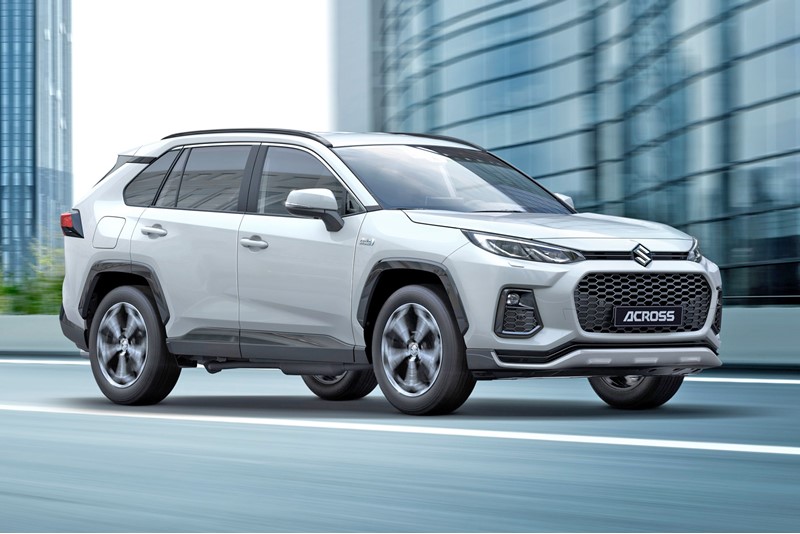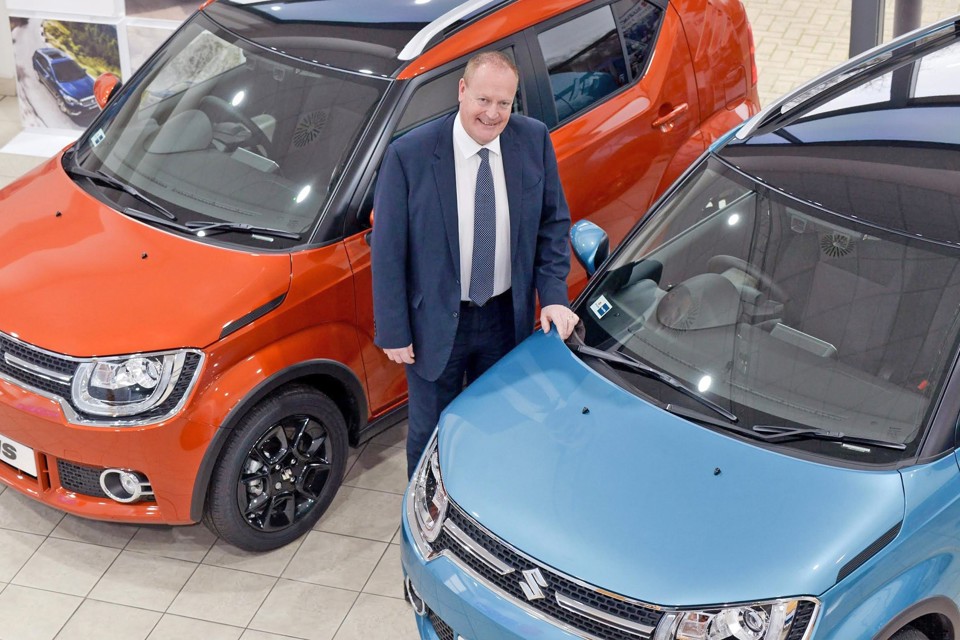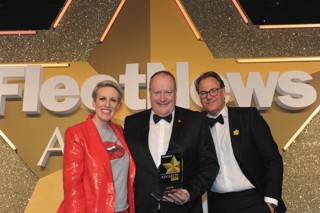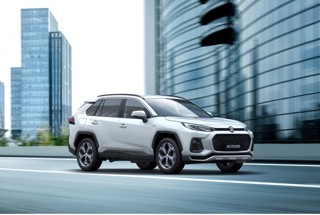The following article was published in the September 24 issue of Fleet News. Read the full article.
Suzuki might seem a bit small fry in the grand scheme of things – its total market share was a modest 1.5% in 2019 – but it’s a car brand with strong intent, a passion for customer service and a dedication to its dealer network.
Fleet sales were not a priority for Suzuki until a few years ago when it recruited Graeme Jenkins, formerly of Maserati, to the role of head of fleet. Since, he has developed a new fleet strategy for the brand that aims to deliver growth while still being true to its core values.
And the strategy has paid off. In March, Suzuki was recognised at the Fleet News Awards, earning the trophy for Most Improved Fleet Manufacturer.
Playing its part in the win was the Suzuki Business Partner programme launched in July 2019.
It allows Suzuki dealers to sign up and be involved in delivering fleet sales by generating their own local business.
More than 60 dealers signed up to the scheme at launch, including several multi-franchised sites that already had in-house fleet experience.
To become a Business Partner, dealers must commit to having a dedicated member of staff for fleet and are given fleet sales targets.
Fleet-specific information
There are also requirements for dealers to have fleet-specific sections on their websites and a strong social media presence.
Above all, dealers are expected to deliver a high level of customer service to the fleet industry.
The brand supports its Business Partners through two regional business sales development managers.
Those sites are the only Suzuki dealerships that handle public sector fleets through the Crown Commercial Service (CCS). Motability sales are also offered through all Suzuki dealerships.
In the past, Suzuki has been a heavily retail-focused brand with more than 90% of sales purely retail.
Jenkins hopes the new strategy will boost true fleet sales to around 40% of the brand’s total sales by 2021. Last year, fleet sales totalled around 10,000 units – accounting for 28% of the brand’s total registrations. Motability is a big part of Suzuki’s business, accounting for around 5,000 registrations per year.
Covid-19 challenge
Like all businesses, Suzuki has taken a hit from the Coronavirus pandemic – a reduction of around 7,000 units by the end of the year – with total sales of 23,000 cars. It had reached 11,000 by the end of August.
“We had to come up with a strategy to get us back on our feet quickly,” Jenkins says. “We had to look at how we can best assist our dealer network. The first thing we did was remove all areas of targeting – without a dealer network we don’t have the ability to deliver any cars.
“We looked at the strategy with our dealers. We wanted to remunerate the network as quickly as possible. The Business Partners have been remunerated as if they were hitting their targets. That has helped them to start earning revenue and to start moving forward again.”
Despite a loss in sales, Jenkins says the brand’s order bank only reduced by around 10% during the pandemic.
He adds: “When we started to deliver cars in July, we still had a considerable order bank. We had to be sensitive around the leasing industry’s return to business, especially some of the brokers who aren’t as agile, but I have been pleasantly surprised at how quickly it has kicked in. For Q3 we are in a positive position.”
The success of the Business Partner programme is yet to be confirmed by the numbers, as the scheme has only been in operation in reality for around nine months.
“It has been quite difficult to analyse the data. We haven’t had a year of stability. We had six months where people were finding their feet and understanding the programme, then it all changed because of Covid. So, it is difficult for us to accurately assess the level of success it has gained. Overall, we are happy with the direction it is going,” says Jenkins.
He plans to re-evaluate the programme and re-launch it in January once there is an “air of normality”.
“There are unlikely to be big changes, but we will be pragmatic. We’ll look at feedback from the network – assessing what is working well and what is a challenge for them. In January, we will make sure it is as fit for purpose as it can be,” Jenkins adds.
New electrified models

While the challenges of Covid are undoubtedly plaguing Suzuki, the brand does have two new cars to launch in the coming months that will enable it to enter two new segments.
The Swace and Across (pictured) are the result of a partnership with Toyota and, essentially, are re-badged versions of the Corolla Touring Sports hybrid and the Rav-4 plug-in hybrid.
They will be the first Suzukis in the UK to feature electrification beyond mild hybrid.
It’s an important step for the brand, which currently has no fully electric model. The new models will help Suzuki avoid hefty EU average fleet emissions fines under the Clean Air for Europe programme (Cafe).
Jenkins expects both to perform strongly in the fleet market, but says the Rav-4-derived Across will only be available in limited numbers.
A reworking of the rest of its current line-up sees the introduction of electrified engines as standard. The Swift, Ignis, S-Cross and Vitara are now fitted with either 12v of 48v mild hybrid technology. AllGrip all-wheel drive is also an option across the range. The Baleno and Celerio are no longer available.
As for the Jimny, that was also removed from sale for the aforementioned emissions targets, but it will return as a stripped-out two-seater commercial vehicle in 2021.
Jenkins concludes: “We have a completely hybrid product range now. These two additions are in new segments and they give us the chance to be genuinely incremental.
“I have no plans of rolling out some big volume deals and doing it the easy way though. The intention is to sell to genuine end users via the leasing industry, in the main.”
Most Improved Fleet Manufacturer: Suzuki GB
Judges’ comments: Suzuki has put in place a new fleet business programme over the past two years as part of a complete rethink in the corporate market. While it has never had a huge foothold in fleet, the restructure, which includes fleet specialists across its dealer network, shows serious intent and has already resulted in impressive growth in the leasing sector last year. Suzuki is now ready and able to service the fleet market.




















Login to comment
Comments
No comments have been made yet.